- Home
- D. H. Lawrence
The First Lady Chatterley's Lover Page 2
The First Lady Chatterley's Lover Read online
Page 2
She never said the things. But she came nearer and nearer to saying them, and at last she was so frightened, when she got up in the morning in one of these demoniacal tempers, that she would hurry out into the park to walk herself calm. At such times her face was blank with ugly passion, and her eyes wide with fear of herself. ‘I am possessed, I know I am possessed,’ she would say to herself pathetically, rushing forward impelled by some savage power in her breast. She could have killed something, someone. It was a great cruelty surging in her.
And in the park, and on the edge of the wood, a reminiscence would come back on her. It was here that something, something had happened. She looked round, into the secret of the place. And it came upon her again, her dream of horses. Surely there was a group of horses, and a mare that would go mad and lash at the others with her heels and tear them with her teeth!
She stood frozen with fear. But no horses were there.
In the wood she heard the report of a gun, as if in echo of her own feelings. She walked on down the wet drive, over the wet, decaying leaves. And as she went, she heard the sound of a voice, and a child’s crying. At once she listened keenly. The child was sobbing, and someone was murmuring, consoling her. She hastened forward, all her disconnected anger fastening upon the supposition that someone was hurting a child. She strode on, her face hot, her eyes shining, her body surging with haste.
Down a narrow path she saw them, a little girl in a purple coat and a moleskin cap, crying, and Parkin, the keeper, bending over her.
‘Tha doesna want him to bite a’ th’ little bunny rabbits, does ta, an’ then eat ’em? Tha doesna want him ta jump on the hen pheasants when they sittin’ nestlin’ down, an’ bite their necks through, does ta? He wor a bad un. Look at him, and then cry for him. Look at him!’
The man’s voice was strangely caressive and yet irritated, and the child would not be comforted. Constance strode up, still with blazing face and eyes, determined that some injury had been done to the child.
‘What is it?’ she demanded abruptly.
The man stood up and touched his cap hastily.
‘Why I shot that there old torn cat, as has been havin’ his own way in here for a month or two,’ he said in a hard voice, pointing to the body of a great brindled cat that lay stretched out on the path. ‘An’ my little gel here, she thinks she must need scraight for him.’ To the child, he added, ‘Come on, come on, naa! My lady’s lookin’ at yer! Shut it up.’
He was mild enough so far with the child, but the irritable impatience was gathering in his voice, his eyes were beginning to harden. It was obvious the child was afraid of him.
Constance bent down to the little girl.
‘What is it? What is it, dear? Don’t cry! It was a nasty bad pussy that scratched the little bunnies and killed them. There! Don’t you cry!’ And she gently wiped the face of the motherless child with her handkerchief. It was obvious the little thing was afraid of the man, her father. Constance felt a resentment against him. No wonder his wife had left him. Constance felt that he did not really like his little girl.
‘Were you going to have her with you all day?’ She asked him.
‘Mother’s at the house,’ he said, jerking his head in the direction of the cottage. ‘She mostly comes a Sat’days, to clean up a bit.’
Constance felt he was polite under compulsion. She felt he disliked her because she was a woman.
‘I should take her home then to her granny. What’s your name, dear?’
The child peeped at her with dark, wilful, resentful eyes.
‘Connie Parkin,’ she said.
‘Come then,’ said Constance, smiling faintly. ‘I’ll take you home while Parkin — while your father does what he has to do.’
‘You don’t have to, my lady,’ said the man.
‘I’ll do it,’ said Constance, leading the child by the hand.
She felt the man standing, watching them go with dislike. He disliked women and despised them. He was merely stupid.
At the cottage the little old energetic woman, with smuts of black-lead on her nose, was busy polishing the fireplace. She started when the child ran in to her, and turning, she saw her ladyship.
‘Why, whatever —!’ she said.
‘Good morning!’ said Constance. ‘I brought your little girl home. She was frightened when her father shot a poaching cat.’
‘Did you ever! It’s very kind of you, mum, I’m sure! What do you say to the lady for bringing you home, Connie?’
‘Thank you!’ said Connie, looking at Constance with bold dark eyes, but putting her finger self-consciously in her mouth.
‘Thank you mum!’ repeated the old woman to the child.
But the girl twisted and would not say it. The collier people would never say ‘my lady’ if they could help it. The child even balked at ‘mum!’ It was a sort of self-conscious clumsiness.
‘I knowed there’d be ructions of some sort when he would take her off with him in the wood. He’s not that easy to get on with at the best of times. Well, thank yer very much for bringin’ her home, I’m sure.’
The old woman was overwhelmed by the attention, at the same time she resented being caught black-leading the grate, and with smuts on her nose.
Constance walked back to the hall, very much aware again of the cold distance between herself and the people. They were not hostile. But they were relieved when she went.
She was quite glad to get back to Clifford and her own milieu. The common people somehow made her angry. A bold-eyed child, that of Parkin’s!
That evening it was very pleasant to sit in Clifford’s study while he read aloud to her. At least, one’s pride was soothed.
The following Saturday Clifford wished to speak to Parkin. But it had been raining too heavily for the chair to go out. In the afternoon Constance walked over with the message. She liked having some aim in her walk.
The front door of the cottage was shut, and nobody came. She walked round to the back and suddenly, in the yard, came upon Parkin washing himself. He had taken off his shirt, as the colliers do, and rolled his breeches on his hips and was ducking his head in the bowl of water. Constance retired immediately and went back into the wood, to stroll around for a time.
But in the dripping gloom of the forest, suddenly she started to tremble uncontrollably. The white torso of the man had seemed so beautiful to her, splitting the gloom. The white, firm, divine body with that silky firm skin! Never mind the man’s face, with the fierce moustache and the resentful, hard eyes! Never mind his stupid personality! His body in itself was divine, cleaving through the gloom like a revelation. — Clifford even at his best had never had that silky, rippling firmness, the more than human loveliness.
It was with great difficulty she brought herself to go back to the cottage and knock at the door. She stood on the threshold and trembled inwardly. Previously, she had never even thought of him as anything but an instrument, a gamekeeper, It seemed to her almost wrong that he should have that pure body.
She heard him coming downstairs. He was dressing to go to town. She stammered as he stood before her in his clean suit and new necktie and Sunday trousers. She stammered almost uncontrollably as she delivered her message, and he listened, watching her with those hard eyes.
She did not like his face. She realised that she was weary of peoples’ faces, and of their mechanical personalities, and of the monotonous, impertinent things they always thought. Could it be possible the star-like, lonely body was hidden under that ridiculous clean shirt and necktie?
‘All right, my lady! I know what Sir Clifford wants. I’ll see to it.’ She turned away. And as she went into the gloom, she felt him watching her. He would be thinking something stupid and mean! Let him think. He was nothing. Even in spite of that hidden loveliness of body, he was nothing. She was extremely bored by common, stupid people.
Yet in her bedroom at night, she looked at her own nude body and wondered if anyone would see in it that visionary beauty sh
e had seen for a moment in the man’s. Would a man see that loveliness in her?
She slipped on her nightdress dejectedly. What was the good! What was the good of anything? Clifford, who was a nice man, was for her bodiless. And men who had beautiful bodies, had common, stupid faces she was not interested in, and common, stupid voices she never wanted to hear.
Clifford read to her nearly every evening. Sometimes he was tired. His crippled condition brought him wearinesses that in themselves were an anaesthetic. But he had a great pleasure in reading to her, all kinds of books. He loved amusing books most of all now. He was reading Hajji Baba. And Constance listened with bent head, as she sewed or embroidered. She had not bobbed her hair. The knot of soft brown hair lay silkily in her neck. And he never knew the thoughts that went on in her modest-seeming, maidenly head. He was so occupied, and gratified to have her there, and so busy, as it were, avoiding repining.
He laughed very much at Hajji Baba when that hero was so utterly repelled by seeing the naked faces of English women. Oh, if the women had only covered their faces, what fire of passion would have run through Hajji’s body! But seeing all the naked indecency of their countenances, his fire was quenched.
This amused Clifford immensely. Constance lifted her head and gazed at him with her big blue eyes, so pondering and touching.
‘Don’t you think it is rather a pity that we never see anything of people but their faces?’ she said. ‘Don’t you think the face is probably the worst part of most people?’
‘You mean if they covered their faces and walked with their bodies naked?’ he laughed. ‘That’s an idea! Like Renoir! He said he always tried to make the face unimportant, just merely a part of the body.’
‘Yes!’ she said. ‘Why should we always see nothing but a face for a person. I’m sure it’s wrong.’
‘Perhaps,’ he said. ‘But I suppose the face reveals the personality,
‘Mayn’t there be something else beside the personality? Something which never comes out?’
He pondered this: something else beside the personality? The idea made him uneasy. He looked closely at his wife, But she was sewing so quietly.
‘What would there be beside the personality?’ he said.
She looked up at him with her brooding, remorseless blue eyes.
‘Mightn’t the body have a life of its own — perhaps truer than the personality?’
‘The body — the stomach and heart and lungs?’ he said.
But she was thinking of something else.
‘Why is a torso, in sculpture, often so lovely, without a head? It has a life of its own.’
‘Perhaps it does!’ he assented. But he was not attending. It was dangerous ground for him, and the shrewdest instinct of self-preservation kept him off it. He began to read again.
But she had a new vague idea to ponder: the body, living a pure, untouched life of its own, apart from the face with all its complexities and frustrations and vulgarity! Faces were nearly always common. Even her own face had in it a discontent which she herself could see.
She put a thick veil over her face, like a Mohammedan woman, leaving only her eyes. And thus she stood naked before her mirror and looked at her slow, golden-skinned, silent body. It was beautiful too, and with a silent, sad, pure appeal. Her breasts were also eyes, and her navel was sad, closed, waiting lips. It all spoke in another, silent language, without the cheapness of words.
But then the mood left her again, and she entirely forgot her body. It was Christmas, and she was extremely busy. Extremely sane and sensible and busy. She could not bear even to touch with the edge of her thoughts those lunatic ideas about the body. Thank heaven she’d got over that nonsense. She had a thousand things to do.
They had some visitors for the Christmas and the New Year, mostly Clifford’s friends and relatives. Everybody was very nice, and Clifford was in good form. It seemed all rather exciting and thrilling, almost at pre-war level. Clifford’s aunt, Lady Eva Rolleston, was staying a few days. She had the remains of the grande dame about her, being daughter of one of the really big families. But she had rather got into disrepute, what with gambling and brandy. Still, there she was, a widow now, tall and slim and unobtrusive, a bit distraite, her blue eyes rather vacant and her fine nose a little reddened. And still she was the grande dame. She was so very simple, for one thing, and in her rather blank unobtrusiveness there was still a power of commanding deference. She sipped her brandy with a noble sang-froid, indifferent to all the comment in the world.
Constance liked her and at the same time was depressed by her. Lady Eva was somehow like a ghost, in her black clothes and her curious naïveté, which was almost girlish and winning. Yet the odd, straightforward girlishness rested upon a very hard determination never to yield one inch, essentially, to anybody on earth. A hard imperviousness and isolation, like the Matterhorn, was at the bleak centre of Lady Eva.
And she rather despised her niece Constance. The vague blue eyes would rest upon the comely young niece with strange detachment. Constance was always warmly, almost tenderly deferential to her aunt, Lady Eva. And her aunt despised her a little, but was indifferent. The daughter of the old R.A. was not of the ruling class. It was not in her to rule. Constance could run a house very well. It was in her to be obeyed. But she could not rule, she had not the ruling nature. Clifford was better that way.
Constance knew that by the grande dame in her aunt she was despised. But after all, the grande dame in Aunt Eva was only her last trick, her trump card, as it were. It was a master trump only up to a certain point. Unless you felt a little sorry for the finely made lady fallen slightly into disrepute, the ‘grande-damerie’, as Clifford called it, wasn’t trumps at all. It was impudence.
‘My dear, I think you’re so wonderful, I do really,’ said Lady Eva, as she sat in Constance’s own sitting-room.
‘Why?’ asked Constance, half -candid, half-expecting a snare.
‘The way you are with Clifford. I think it’s wonderful, really. You must have a wonderful nature.’
‘Why?’ asked Constance again.
‘The poor boy, crippled as he is! — not more than half a man, you might say. Of course it’s the right half, for people like me. He is so witty and entertaining. But for a wife, I’m not so sure at all.’
‘Oh, but Clifford is all right, I assure you,’ said Constance. ‘He’s almost perfect as a husband.’
‘Oh yes, I can see that. He takes a lot of trouble to keep you interested. Oh, he’s a clever boy. No doubt, but for that accident in the war he’d be a perfect husband. But as it is, you must suffer terribly from deprivation: deprived of one side of life.’
‘But I don’t!’ said Constance. ‘I’m not deprived of anything I want. I’m not really.’
Lady Eva fetched her a vague glance.
‘I’m so awfully glad if you’re not,’ she said. ‘It would be so awful if you were. Nothing is so bad for you as to forego things in your youth, so that they come on you again when you’re getting too old for them. Nothing is so bad for a woman as she gets on in life as the feeling that she’s missed something: perhaps the most important thing.’
‘But what is the most important thing?’ asked Constance.
‘That I don’t know. But it’s something to do with men. I was faithful to my husband. I don’t say I wish I hadn’t been. But I used to wish, dreadfully, I had had something else. It is a dreadful feeling, to feel you’re going to die without having had what you were born for, in a way.’
‘But what are we born for?’ asked Constance heavily. ‘It seems to me we are born for so many things. Or perhaps we’re not born for anything at all. It’s just a question of making our minds up about it.’
‘I don’t know, I’m sure,’ said Lady Eva. ‘When I was young I thought I wanted reform, politics, and all that kind of thing. Well, I had that. We were in politics till we hardly knew anything else but politics, my husband and I. And of course ours was a love match —and there are the three chi
ldren. Yet towards the end, when I was forty-six or so, I felt I’d lived absolutely for nothing. The one thing I’d really wanted, I’d never had it at all. And then it was too late. It’s the most miserable thing a woman can feel. — I think women should experiment more. We get things into our heads, and that shuts us off from everything else. If women were more open-minded and experimented more to find out what they want, I’m sure they’d find something.’
‘But what? What is there to find?’ asked the puzzled Constance.
‘I don’t know. But we get things into our heads. I got it into my head that I wanted romantic love, and politics, something in the George Meredith line. Well, I got it. And it wasn’t what I really wanted at all. Women should be awfully careful about the things they’re sure they want. They’re nearly always wrong, Dead Sea apples when they’ve got them.’
‘But what do you think you might have had, that might have satisfied you?’
‘I don’t know exactly. But I think if I’d loved a good-looking jolly policeman for a time, I might feel better. Anyhow, that’s what I think now that I wanted.’
Constance began to laugh silently.
‘It seems so very simple,’ she said.
‘Doesn’t it!’ said Lady Eva. ‘But I could no more have done it when I was young than fly. I could never have let a jolly young policeman have his way with me — that is, not until I’d turned him into something that was no longer a jolly young policeman. I couldn’t. And now I wish I had. Doesn’t it seem absurd for an old woman to be saying?’
Lady Eva was not an old woman, she was well under sixty. But she accepted her youth as over.
‘It does seem rather queer,’ said Constance.
‘That’s why I wanted to warn you. Try and get what you want in your youth. An elderly woman possessed by vain regrets is worse than possessed with devils.’
Constance looked searchingly at her aunt.
‘Thank you for warning me,’ she said. ‘But really, I think I’ve got everything I want. — And women are a nuisance, don’t you think? —even to themselves. I don’t think it’s a question of a policeman more or less, really. We should be dissatisfied by the time we reach fifty, whatever we had. I’m sure policemen’s wives are dissatisfied as they grow older, worse than we are.’

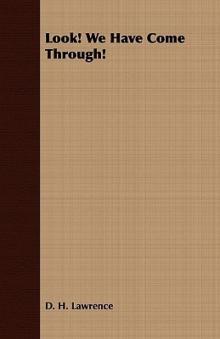 Look! We Have Come Through!
Look! We Have Come Through!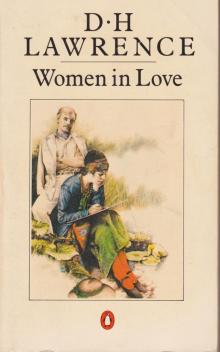 Women in Love
Women in Love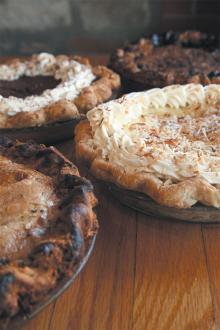 The Ladybird
The Ladybird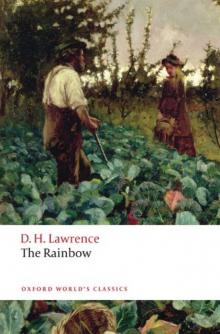 The Rainbow
The Rainbow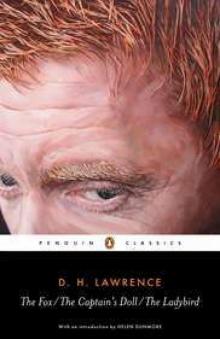 The Captain's Dol
The Captain's Dol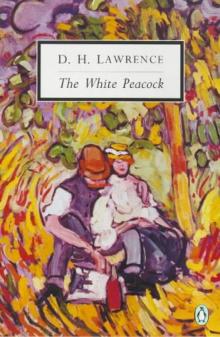 The White Peacock
The White Peacock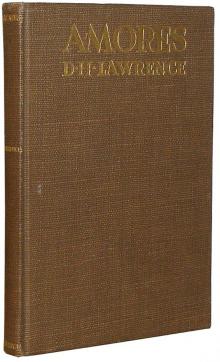 Amores
Amores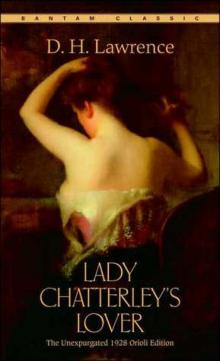 Lady Chatterley's Lover
Lady Chatterley's Lover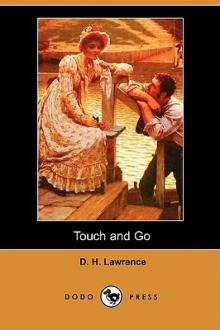 Touch and Go
Touch and Go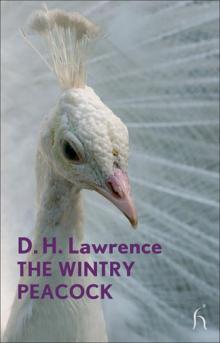 The Wintry Peacock
The Wintry Peacock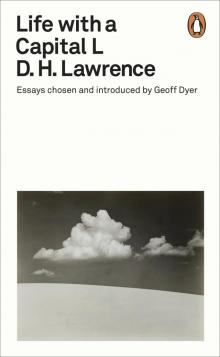 Life with a Capital L
Life with a Capital L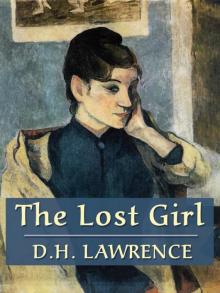 The Lost Girl
The Lost Girl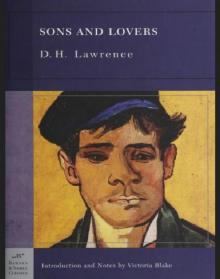 Sons and Lovers
Sons and Lovers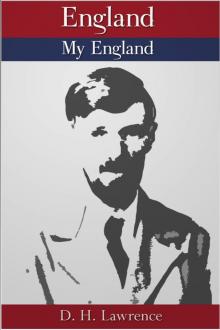 England, My England
England, My England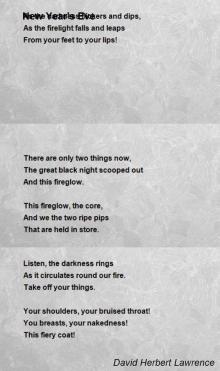 New Poems
New Poems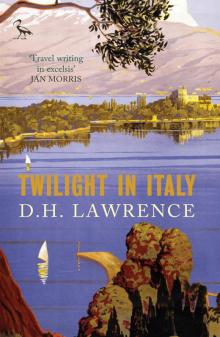 Twilight in Italy
Twilight in Italy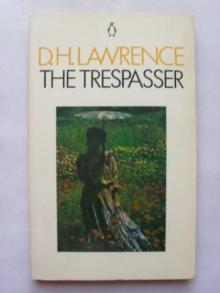 The Trespasser
The Trespasser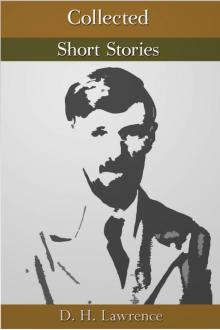 The Collected Short Stories
The Collected Short Stories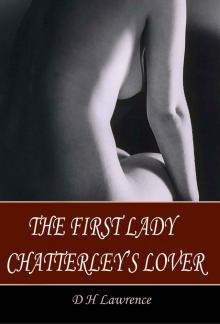 The First Lady Chatterley's Lover
The First Lady Chatterley's Lover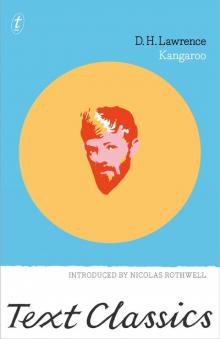 Kangaroo
Kangaroo Bay
Bay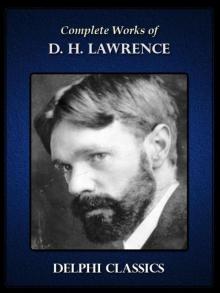 Complete Works of D.H. Lawrence
Complete Works of D.H. Lawrence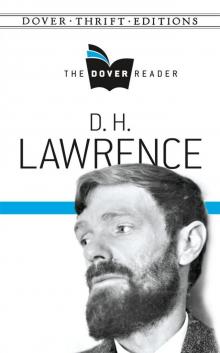 D H Lawrence- The Dover Reader
D H Lawrence- The Dover Reader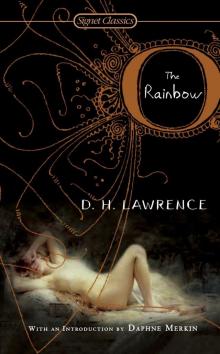 The Rainbow (100th Anniversary ed.)
The Rainbow (100th Anniversary ed.)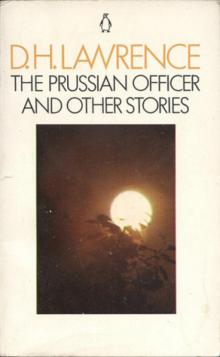 The Prussian Officer
The Prussian Officer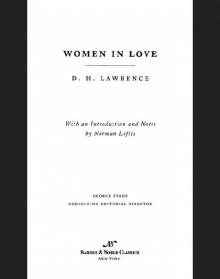 Women in Love (Barnes & Noble Classics Series)
Women in Love (Barnes & Noble Classics Series)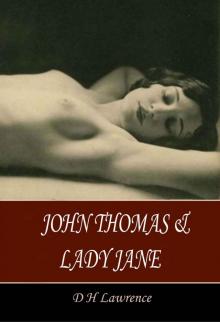 John Thomas and Lady Jane
John Thomas and Lady Jane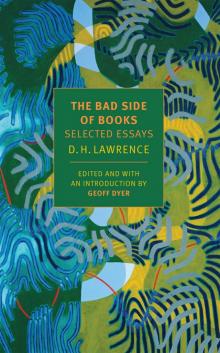 The Bad Side of Books
The Bad Side of Books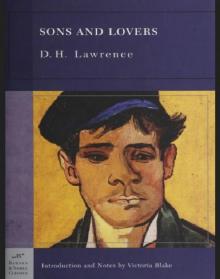 Sons and Lovers (Barnes & Noble Classics Series)
Sons and Lovers (Barnes & Noble Classics Series) Selected Stories
Selected Stories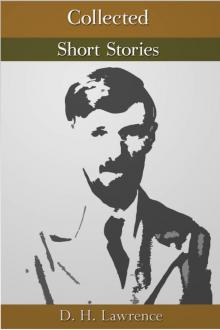 Collected Short Stories
Collected Short Stories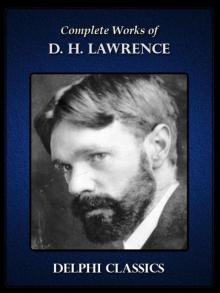 Complete Works of D.H. Lawrence (Illustrated)
Complete Works of D.H. Lawrence (Illustrated)